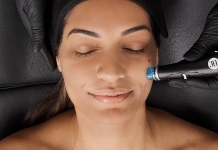Pigmentation peptides deliver tanning potential

Swedish company Coegin Pharma is using pigmentation technology pioneered at the University of Bradford's Centre for Skin Sciences (CSS) to create a new tanning product that encourages the body to tan itself without the need for exposure to the sun or UV rays.
The biotech firm and university began collaborating in 2019, and having obtained full commercial rights, Coegin Pharma aim to launch the first cosmetic tanning product using these patented pigmentation peptides in 2026.
The pigmentation peptides imitate a naturally occurring protein that affects melanin production and transportation, encouraging the body's natural melanocytes to rise to the skin's surface and create the same effect as a natural tan.
This method also has the potential to address pigmentation concerns such hyperpigmentation, hypopigmentation (e.g. vitiligo), restoring natural hair pigmentation to treat greying hair, and decreasing pigmentation on brown warts and age spots.
Primarily Coegin Pharma has contributed its formulation expertise to ensure the peptides can be delivered effectively and remain stable, and that active ingredients don't lose their effectiveness.
Jens Eriksson, CEO of Coegin Pharma, comments:
“These pigmentation peptides are very exciting and could revolutionise the market for skin and hair care products. We look forward to starting the commercialisation, which has many common denominators with our hair growth project FOL005, and aim for launch in 2026."
Professor Sherif El-Khamisy, Pro Vice-Chancellor for Research and Innovation at the University of Bradford, adds:
“Commercialisation of intellectual property is one of the ways in which we realise the potential of our research and innovation workstreams, particularly when those are likely to have a positive impact on people's lives. This agreement with Coegin Pharma shows that our research is innovative, disruptive and has the potential to make a real difference.”
Coegin Pharma
University of Bradford - Centre for Skin Sciences

-13546.png)









